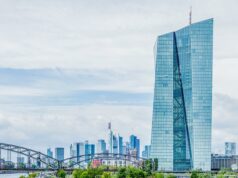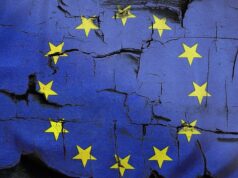Seven judges deal with Spain’s judiciary with the separatist movement in Catalonia. It’s not just about finding a fair verdict.
A sure indication of the importance of a public person is when no one wants to speak to her by name. And in interview requests to Manuel Marchena harvesting present-friendly cancellations. As of today, the Spanish judge, as president of the Supreme Court’s Criminal Division, will direct the trial against the leaders of the Catalan Influence Movement. Because of holding a referendum and proclaiming independence in the fall of 2017, twelve politicians are being charged with rebellion, infidelity and disobedience. The prosecutor’s office demands imprisonment between seven and 25 years. (Read all about the procedure here.)
The judge, who has to say about it, describe colleagues as detail-obsessed, meticulous workers and excellent lawyers. Others describe Manuel Marchena as a convinced conservative and party friend of the conservative PP. There is no evidence of political affiliation in the brief official biography. One thing is certain: as of today, the judge, born in Gran Canaria in 1959, is publicly exposed to the spotlight.
Stage fright can be felt in the marble-clad foyer of the TribunalSupremo in Madrid. Judges speak of the „most important criminal trial in the history of democracy“. With more than 600 accredited journalists from 50 countries, it is at least one that arouses enormous interest. The public debate in Spain, he determines anyway for months, especially in Catalonia. The independence movement sees in the indictment alone proof of revenge justice. The word of „Franco Land“ is circulating: in a country that has never overcome its military dictatorship, the Catalan politicians do not expect justice, the verdicts have long been written. And, from Belgium, ex-Prime Minister Carles Puigdemont, who is in self-imposed exile, misses no opportunity to point to the alleged lack of quality of Spanish democracy.
Not surprisingly, just before the start of the process, the Spanish judiciary is also preparing for the counter-offensive. Foreign journalists were handed a full-page dossier on the „independence of the judiciary in Spain.“ Spain is one of the countries whose judgments are least challenged by the European Court of Human Rights. On The Economist’s Democracy Index, the country continues to be among the full-fledged democracies.
Is Marchena biased?
Positive propaganda is not the sole cause of the separatists‘ lawsuit. Over the past few months there have been doubts about the credibility of the Supreme Court over and over again. In the fall, an abrupt turnaround in a mortgage verdict caused a stir: The Tribunal Supremo revised its own ruling within two days, saving banks billions in repayments. Shortly thereafter, the independence of the judges was again put to the test. A politician of the conservative People’s Party PP boasted of having promoted the party’s own candidate for the post of chairman of the General Council of the Jus- tice, the very body that determined the judges in Spain. The corrupted party will now control the criminal court „through the back door“. A wave of indignation spilled through the media, and the judge in question renounced the high office.
It was none other than Manuel Marchena. Ironically, he is now the procession of the ringleaders of the Procès , as the political pursuit of independence in Spain is called. The defendants of the defendants had vainly filed a motion of bias against him. Right?



